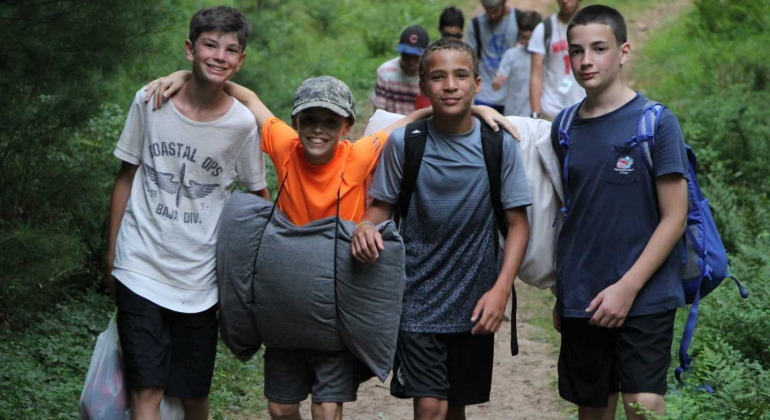Stay Home So We Can Go Home This Passover

The holiday of Passover is upon us. No matter how you frame it, Passover will be different this year, with the coronavirus pandemic forcing most of the world into a situation where we are homebound. Many family seders are moving to virtual gatherings, typical Passover shopping is happening via Instacart and contact-less delivery rather than flocking to the grocery stores as we hunker down to flatten the curve. The irony that we are about to count the plagues that led the Israelite’s freedom while we are asked to social distance to fight one isn’t lost on us. This year we are peeling back the base layers of Passover and are examining the journey the Israelites took as they returned home, some 40 years later, to the Promised Land.
At the Passover Seder, we retell the story of the Exodus, from baby Moses in the Nile to the burning bush, the parting of the Sea of Reeds, Mount Sinai, and beyond. The story is riddled with lessons and symbolism, but there are two that seem quite fitting with the current situation.
During the 10th and final plague, the Israelites were commanded to mark their doors with lamb’s blood and stay indoors so that angle of death would pass over their homes. Similarly, now we are commanded in a different way to stay home. For some of us this has been going on for over a month, and for others just a few days or weeks. But the fact is that, in both cases, we have been confined to our homes for the betterment of society. This time, instead of the order coming from Moses, a prophet of God, we are listening to the doctors, scientists, and experts who tell us multiple times each day to wash our hands, cover our faces, remain socially distanced, and to stay home unless an outing is absolutely necessary. On that night in Egypt, the homes of the Israelites became a safe haven, a sanctuary, much like our homes are now.
Of course, as soon as Pharaoh agreed to free the slaves, there was a hasty exit made, away from the pyramids and towards the wilderness of freedom. It wasn’t until they safely crossed the Red Sea and Pharaoh’s army was swallowed up in it, that the journey home began. A journey to a land that none of the people had seen but the to the land that had been promised to them. A journey to a land to call their own, to care for, and to protect- a home. This is the second powerful take away. As we know, Camp Chi’s slogan is “Here for Summer. Home for Life.” Home. The word implies permanence and safety. Much like our homes right now are a sanctuary, camp is a sanctuary for the Camp Chi Family. Unfortunately, with the COVID-19 pandemic, our journey home is threatened for the first time in nearly a century of existence. As a home for so many, camp is responsible for keeping its inhabitants safe and healthy, and our top priority is to offer camp safely if we are permitted to do so.
The full-time team has spent their weeks in quarantine not just planning and offering different engagement opportunities for the Camp Chi Family, but also planning for every possible scenario and developing many contingencies. We would love nothing more than to throw these plans out the window and run camp as normal this summer. And to do that we need your help. As we conclude seder, it is traditional to say, “Next year in Jerusalem.” That message resonates with us, but we can’t be looking ahead to next Pesach at this point. At our seders, virtual or not, we’ll be adding 2 more phrases: “This Summer at Camp Chi!” and “Stay Home so We can Go Home!” These two phrases sum up our sentiments. We want nothing more than to be able to welcome everyone to camp this summer, but we can only do that if everyone takes this pandemic seriously, and that requires us to remind our family, our friends and everyone else to stay home, so we can take our journey, like the Israelites did in ancient times, and eventually we too can go home.






